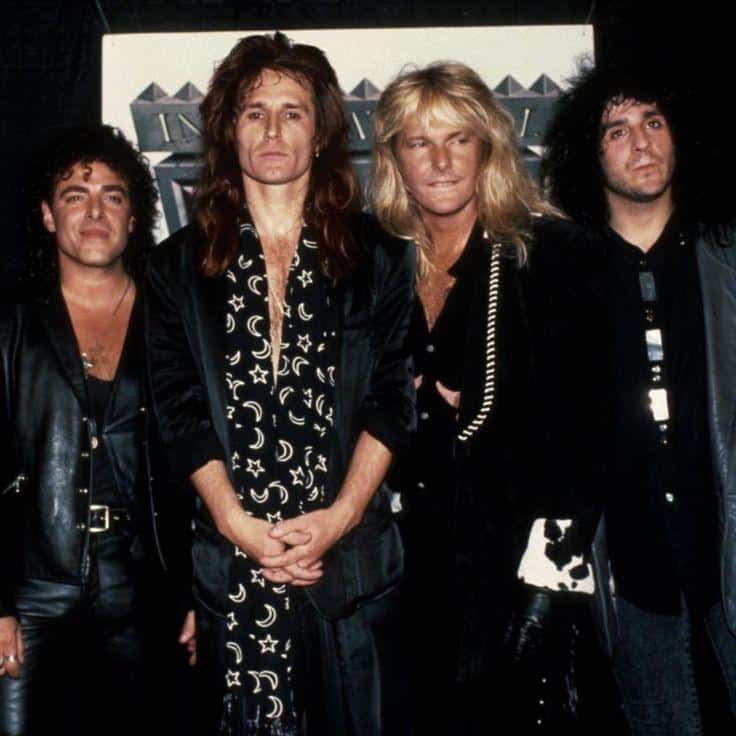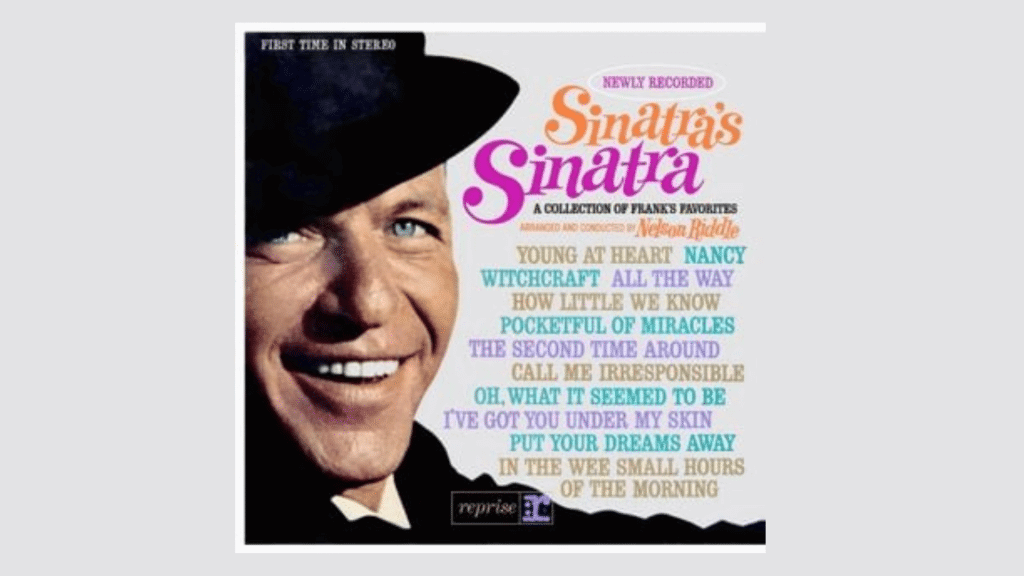Many music fans are intrigued by the talented supergroup Bad English but may not know much about the individual members.
This blog post will provide an in-depth look at the acclaimed musicians who came together to form this iconic late ’80s rock band.
You’ll learn about the impressive backgrounds of lead singer John Waite, guitarist Neal Schon, keyboardist Jonathan Cain, bassist Ricky Phillips, and drummer Deen Castronovo, as well as their key contributions that made Bad English a commercial and artistic success.
Basics About Bad English Band
Formation and Success
Bad English was formed in 1987, combining the talents of musicians from the successful bands The Babys and Journey.
This strategic union aimed to blend the strengths of both groups, leveraging their established fan bases and diverse musical abilities.
The band’s name, “Bad English,” was humorously inspired by a remark about a poorly executed “English” spin during a game of pool.
The supergroup quickly achieved commercial success with their 1989 self-titled debut album, “Bad English.”
This record showcased a dynamic mix of rock anthems and powerful ballads, reflecting the band members’ varied influences.
The album received positive reviews and substantial radio airplay, propelling it to rapid success on the charts.
The melding of these accomplished artists from different backgrounds was a winning formula, at least initially.
Key Singles
Bad English’s debut album produced several major hit singles that solidified the supergroup’s place in the late 1980s rock scene.
Their breakout smash “When I See You Smile,” written by Diane Warren, soared to number one on the Billboard Hot 100 chart.
This anthemic track featured John Waite’s powerful and dynamic lead vocals backed by the band’s soaring instrumentals.
Its poignant lyrics and high-energy music video, which was in heavy rotation on MTV, propelled it to become one of the defining songs of that era.
The album’s other major hit was the Top 10 single “Price of Love.”
This uptempo rocker blended hard-driving energy with melodic hooks and showcased Neal Schon’s searing guitar work.
Its insanely catchy chorus made it an instant radio staple.
The introspective “Possession” was another key track that further displayed Bad English’s versatility and John Waite’s vocal prowess, even if it didn’t quite match the commercial success of the previous two singles.
With multiple smash hits exhibiting their diverse musical talents, Bad English’s debut solidified their status as one of the preeminent rock supergroups of that period.
John Waiter: The Voice of Bad English

John Waite was the dynamic lead vocalist whose powerful voice and passionate delivery defined the sound of the supergroup Bad English.
As the frontman, his contributions were pivotal to the band’s meteoric rise and enduring impact on the rock music landscape.
This section will delve into Waite’s background, musical journey, and his indelible mark on Bad English and beyond.
1. Background
Early Life and Personal Background Born on July 4, 1952, in Lancaster, Lancashire, England, John Waite’s passion for music took root from an early age.
Surrounded by rock and roll sounds, he developed an affinity for the genre’s raw energy and emotional depth.
Waite nurtured his artistic talents by attending Lancaster Art College, where he honed his visual and performing arts skills.
2. Career Beginnings
Waite’s professional music career began in the mid-1970s as the lead vocalist and bassist for the band The Babys.
Alongside his future Bad English bandmates, he achieved commercial success with hits like “Isn’t It Time” and “Every Time I Think of You.”
After The Babys disbanded, Waite embarked on a solo career in the early 1980s, releasing several critically acclaimed albums.
3. Formation of Bad English
In 1987, Waite reunited with his former Babys bandmates Jonathan Cain and Ricky Phillips, joining forces with Journey members Neal Schon and Deen Castronovo to form the supergroup Bad English.
Waite played a pivotal role in the band’s formation, bringing his unique vocal and songwriting talents.
Impact and Legacy of Bad English
1. Influence on Bad English
John Waite’s contributions were integral to Bad English’s success and identity.
His distinctive voice and passionate delivery set the band apart from other rock acts of the era, giving them a unique and immediately recognizable sound.
Waite’s charismatic stage presence and powerful vocals became the hallmark of Bad English’s live performances, leaving a lasting impression on fans and critics alike.
2. Continued Influence in Rock Music
Even after Bad English disbanded, Waite’s influence on the rock genre continued through his solo work.
His 1984 hit “Missing You,” topped the Billboard Hot 100, remains a beloved classic and a testament to his enduring talent.
Throughout his career, Waite has consistently delivered powerful and emotionally resonant performances, solidifying his status as a rock icon.
3. Long-Lasting Legacy
John Waite’s contributions to Bad English and his broader musical career have left an indelible mark on the rock music landscape.
Recognized as a defining figure in the genre, his legacy continues to inspire new generations of musicians.
Waite’s ability to channel raw emotion through his vocals and songwriting has made his work timeless, resonating with fans and artists alike, cementing his place in rock history.
4. Personal Life and Early Background
While his professional achievements are remarkable, John Waite’s personal life and early background have also significantly shaped his artistic journey.
Born into a family with a deep appreciation for music, Waite’s passion was nurtured from a young age.
His formative years in Lancaster fostered his creativity and laid the foundation for his future success.
John Waite’s essential role in Bad English and his musical career cannot be overstated.
As the lead vocalist, his powerful voice and passionate delivery defined the band’s sound and captivated audiences worldwide.
Beyond his contributions to Bad English, Waite’s solo work and enduring influence on the rock genre solidify his status as a true icon.
Waite’s ability to channel raw emotion through his vocals and songwriting has made his art timeless, resonating with fans and fellow musicians across generations.
His personal and musical journey, rooted in his early life and artistic beginnings, has been a testament to rock music’s enduring power to connect people and convey universal human experiences.
As Waite continues to inspire and leave his mark on the musical landscape, his legacy reminds us of a single voice’s transformative impact on an entire genre and the hearts of countless listeners.
Jonathan Cain: The Keyboards Maestro

Jonathan Cain’s influence as a keyboardist and songwriter is undeniably crucial to understanding the success of the supergroup Bad English.
This section will explore his rich background, musical contributions, far-reaching impact, enduring legacy, and personal life journey.
We will delve into his early beginnings, role in the iconic band The Babys, transition to the legendary Journey, and significant contributions to shaping Bad English’s unique sound.
1. Background
Jonathan Cain, born Jonathan Leonard Friga on February 26, 1950, in Chicago, Illinois, had a profound early life experience that would shape his resilience and outlook.
As a young child, he survived the tragic Our Lady of the Angels School fire in 1958, an event that left an indelible mark on him.
Cain’s musical journey began at the age of eight when he started playing the accordion. Later, he expanded his skills to the piano and other instruments.
He honed his talents through education, graduating from East Leyden High School and attending the prestigious Chicago Conservatory of Music.
2. Career with The Babys
In 1979, Cain joined the power pop band The Babys, contributing his talents to the albums “Union Jacks” and “On the Edge.”
During his tenure with the band, he played a significant role in shaping their sound and contributing to their success on the music charts.
3. Journey’s Rise
In 1980, Cain’s career took a monumental turn when he joined the rock band Journey, replacing the legendary Gregg Rolie on keyboards.
His contributions were instrumental in propelling Journey to new heights of fame and success with iconic albums like “Escape” and “Frontiers.”
Cain co-wrote some of the band’s most beloved and enduring hits, including the anthemic “Don’t Stop Believin'” and the heart-wrenching ballad “Faithfully.”
Neal Schon: The Guitar Virtuoso

Neal Schon is a true guitar virtuoso and a pivotal figure in the rock music scene.
He is renowned for his extraordinary skills and influential contributions to multiple iconic bands.
This section will delve into Schon’s rich background, musical contributions, far-reaching impact, enduring legacy, and personal life, providing a comprehensive understanding of his influence and illustrious career.
1. Background
Born on February 27, 1954, in San Mateo, California, Neal Schon displayed prodigious talent from a young age, beginning his guitar journey at the tender age of 10.
His exceptional skills quickly propelled him to the big leagues.
At the remarkably young age of 17, he joined the legendary Carlos Santana’s band and contributed to their critically acclaimed albums “Santana III” and “Caravanserai.”
2. Formation of Journey
In 1973, Schon co-founded the iconic rock band Journey alongside fellow Santana alumnus Gregg Rolie.
This seminal partnership laid the foundation for Journey’s meteoric rise to fame, with the band becoming one of the most successful and beloved rock acts of all time.
The band is known for anthemic hits like “Don’t Stop Believin'” and the poignant ballad “Open Arms.”
3. Musical Contributions
Role in Bad English
As the lead guitarist for the supergroup Bad English, Neal Schon’s dynamic and powerful guitar solos gave the band their hard rock edge.
His contributions went beyond his virtuosic playing.
He co-wrote several key tracks, including hit singles and fan favorites, that cemented the band’s place in the annals of rock history.
Signature Guitar Style
His technical mastery and expressive playing characterize Schon’s guitar prowess.
He seamlessly blended elements of hard rock, jazz fusion, and blues, creating a distinctive sound that set him apart from his contemporaries.
His ability to infuse each note with raw emotion and energy captivated audiences worldwide, solidifying his reputation as one of the greatest guitarists of his generation.
Collaborations and Side Projects
Beyond his work with Bad English and Journey, Neal Schon’s musical journey has been marked by numerous collaborations and side projects.
He has worked with acclaimed artists such as Jan Hammer and Paul Rodgers and bands like Hardline and Soul SirkUS.
Additionally, his extensive session work has seen him contributing his guitar skills to albums by artists like Michael Bolton and Sammy Hagar.
Ricky Phillips: The Bass Backbone

Ricky Phillips, renowned for his solid bass lines and remarkable versatility, played a crucial role in shaping the musical foundation of the supergroup Bad English.
His bassist and backing vocalist contributions were integral to the band’s rhythmic core and overall sound.
This section explores Phillips’s rich background, musical contributions to Bad English, far-reaching impact, and enduring legacy within the rock music world.
1. Background
Before joining Bad English, Ricky Phillips established his reputation as a talented bassist during his tenure with the band The Babys.
This early exposure to success on the music charts laid the groundwork for his future collaborations with other accomplished musicians.
Beyond his band memberships, Phillips’s extensive session work with various artists showcased his adaptability and skill in diverse musical settings, further solidifying his versatility as a bassist.
2. Musical Contributions
In Bad English, Ricky Phillips’s role as a bassist and backing vocalist was pivotal to the band’s overall sound.
His bass playing was essential, providing a solid rhythmic foundation supporting the melodic and harmonic elements of the band’s compositions.
Phillips’s consistent and powerful bass lines anchored the music, allowing the other instrumentalists to soar and explore their creative boundaries.
Additionally, his backing vocals added depth and richness to the band’s vocal harmonies, complementing the lead vocals and contributing to the overall sonic tapestry.
Phillips’s ability to seamlessly blend his talents with those of his bandmates was a testament to his musicianship and his understanding of the collaborative nature of rock music.
3. Impact and Legacy
After Bad English disbanded, Ricky Phillips continued to achieve success as a member of the legendary rock band Styx.
His tenure with this iconic group further solidified his place in rock music history and cemented his reputation as a versatile and accomplished bassist.
Phillips has been recognized throughout his career for his ability to seamlessly integrate into various musical genres and settings, making him a sought-after bassist in the industry.
His adaptability and commitment to his craft have earned him the respect and admiration of his peers and countless fans around the world.
4. Personal Life and Early Background
Ricky Phillips’s passion for music developed at an early age.
He was born on October 7, 1952, in Mount Pleasant, Iowa.
Influenced by the sounds of rock and progressive music, Phillips dedicated himself to honing his skills through rigorous practice and performance, laying the foundation for his future roles in notable bands like The Babys and Bad English.
While Phillips maintains a private life outside of his musical endeavors, his dedication to his craft and his love for music have clearly been the driving forces behind his successful career.
Throughout his journey, he has engaged in various activities and pursuits that reflect his interests and values, further enriching his life and his artistic expression.
Ricky Phillips’s contributions to Bad English and his subsequent career highlight his significant role in the rock music landscape.
His talent, versatility, and dedication to his craft have left an indelible mark on the genre, making him an essential figure in the history of rock bassists.
Through his solid bass lines, backing vocals, and unwavering professionalism, Phillips has solidified his place as the backbone of Bad English and a true master of his instrument.
Deen Castronovo: The Drumming Powerhouse

1. Background
Deen Castronovo is a renowned drummer whose exceptional talent and versatility have made him a highly sought-after musician in the rock music scene.
His career highlights include his work with the legendary band Journey and his pivotal role as the powerhouse drummer for the supergroup Bad English in 1987.
Born on August 17, 1964, in Westminster, California, Castronovo’s passion for drumming ignited at a young age, fueled by his admiration for prominent drummers like Steve Smith and Neil Peart.
2. Musical Contributions
Castronovo’s drumming style is characterized by its high energy, technical proficiency, and unwavering precision.
In Bad English, his powerful drumming provided a solid rhythmic foundation that underpinned the band’s music, serving as the heartbeat that propelled their sound.
Beyond his drumming prowess, Castronovo also contributed backing vocals, enhancing the band’s vocal dynamics and adding depth to their harmonies.
One of Castronovo’s most remarkable assets was his electrifying live performances.
Known for his showmanship and boundless energy, Bad English’s dynamic stage presence added an engaging and captivating element to his concerts, leaving audiences in awe of his drumming virtuosity.
3. Impact and Legacy
Throughout his illustrious career, Deen Castronovo has established himself as a highly respected and sought-after session musician.
His exceptional talent has allowed him to work with numerous notable artists and bands, showcasing his versatility across different musical styles and genres.
Castronovo’s contributions have extended far beyond the studio.
He has played on numerous successful tours and contributed significantly to the live performances and success of bands like Journey and Revolution Saints.
Castronovo’s impact on the rock music scene is enduring, and his influence inspires new generations of drummers.
His innovative drumming techniques, rhythmic mastery, and dynamic stage presence have left an indelible mark on the industry, solidifying his status as a true drumming powerhouse.
4. Personal Life and Early Background
Castronovo’s love affair with music began at the tender age of 6 when he was first captivated by the sounds of iconic bands like Kiss and Led Zeppelin.
This early exposure to rock music ignited his passion for drumming, and he actively nurtured his skills by participating in school bands and local music groups, honing his craft with each performance.
Castronovo’s professional breakthrough came in the early 1980s when he joined the band Wild Dogs, marking the start of his illustrious career as a professional drummer.
His exceptional drumming prowess quickly gained recognition, opening doors to opportunities with bigger bands and putting him on the path to becoming the drumming force he is today.
While Castronovo’s journey has not been without its challenges, including personal and legal issues in the mid-2010s, he has emerged stronger and more resilient than ever.
His ability to overcome adversity and make a triumphant comeback is a testament to his perseverance and commitment to personal growth, inspiring aspiring musicians everywhere.
Deen Castronovo’s role in Bad English was integral to the band’s rhythm section and live performances.
His powerful drumming and dynamic stage presence contributed significantly to the band’s sound and overall impact, leaving an indelible mark on the rock music landscape.
Today, Castronovo’s enduring legacy extends far beyond Bad English.
He continues to be a respected and influential figure in the rock music industry.
His journey, marked by exceptional talent, unwavering dedication, and the ability to overcome challenges, inspires aspiring musicians and is a testament to the transformative power of perseverance and personal growth.
Discography and Key Achievements
Albums
1. “Bad English” (1989)
- Bad English’s debut album, released in June 1989, marked their explosive arrival on the rock music scene.
- Achievements: The album achieved Platinum status and featured multiple hit singles, including the chart-topping “When I See You Smile” and the Top 10 smash “Price of Love.”
- Musical Style: The album’s dynamic blend of rock anthems and emotive ballads showcased the band’s versatility and ability to craft music that resonated with a wide audience.
2. “Backlash” (1991)
- Released in August 1991, “Backlash” was Bad English’s second studio album.
- Achievements: While it experienced moderate success, the album’s lead single, “Straight to Your Heart,” failed to reach the Top 40, peaking at number 42 on the charts.
- Impact: The mixed critical reception and internal tensions within the band contributed to their eventual dissolution shortly after the release of “Backlash.”
Tours and Performances
1. Extensive Touring
- Initial Tour: Bad English embarked on an extensive tour in support of their critically acclaimed debut album, solidifying their reputation as a formidable live act.
- Major Tour with Whitesnake: From March to June 1990, the band joined forces with the legendary Whitesnake, touring across the United States and significantly boosting their visibility and fan base.
2. Live Performances
- High Energy Shows: Bad English’s live performances were renowned for their captivating energy and dynamic stage presence.
- Audience Engagement: The band’s ability to engage and interact with their audiences highlighted their appeal, creating memorable experiences for concertgoers.
Summing It Up
Bad English’s journey from a supergroup formation to its eventual breakup showcases the complexities of maintaining artistic integrity and collaboration.
Each member’s divergent musical interests and discomfort with a corporate rock image led to their dissolution, yet their post-band careers continued to shape the rock landscape.
From John Waite’s emotive solo work to Neal Schon’s guitar virtuosity with Journey, the band’s legacy endures through their continued influence and success.
Explore more about the individual achievements of these rock legends in our detailed member profiles and discover how their music continues to resonate today.





















